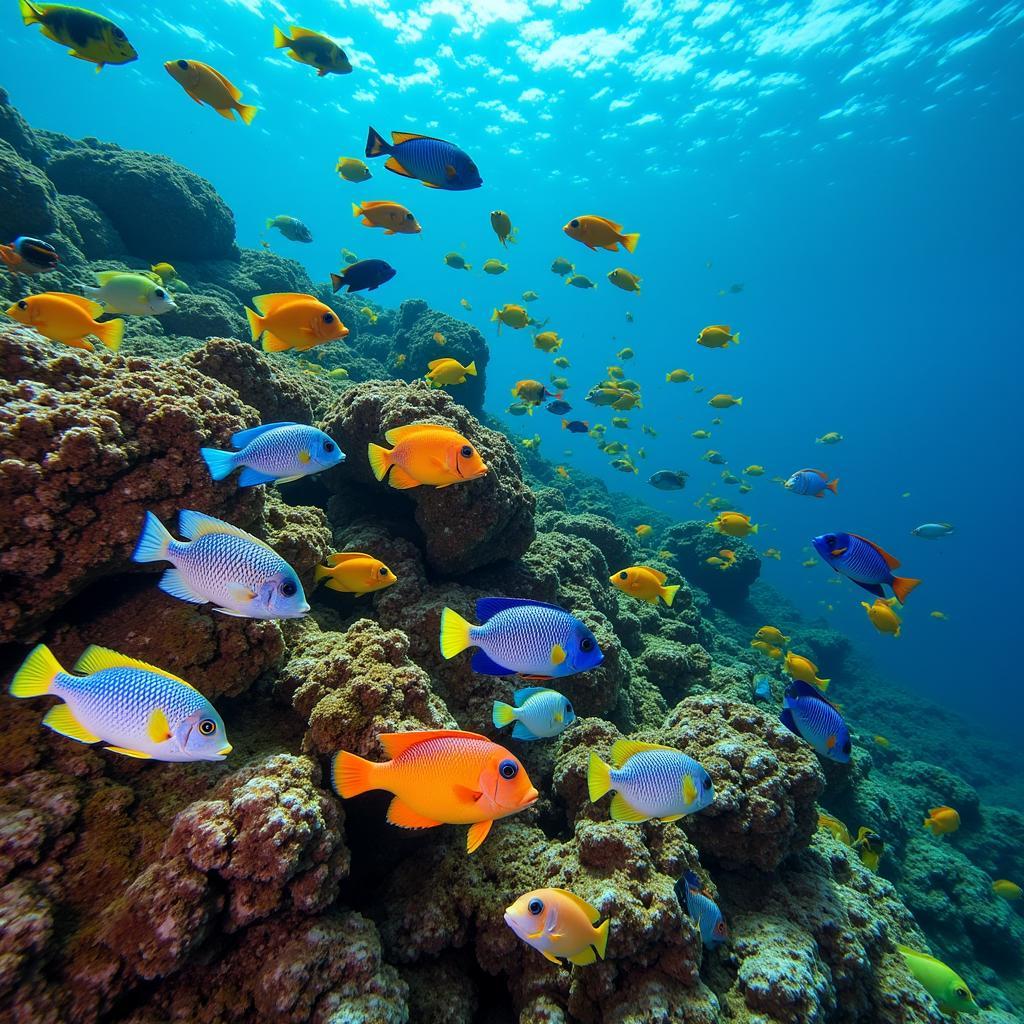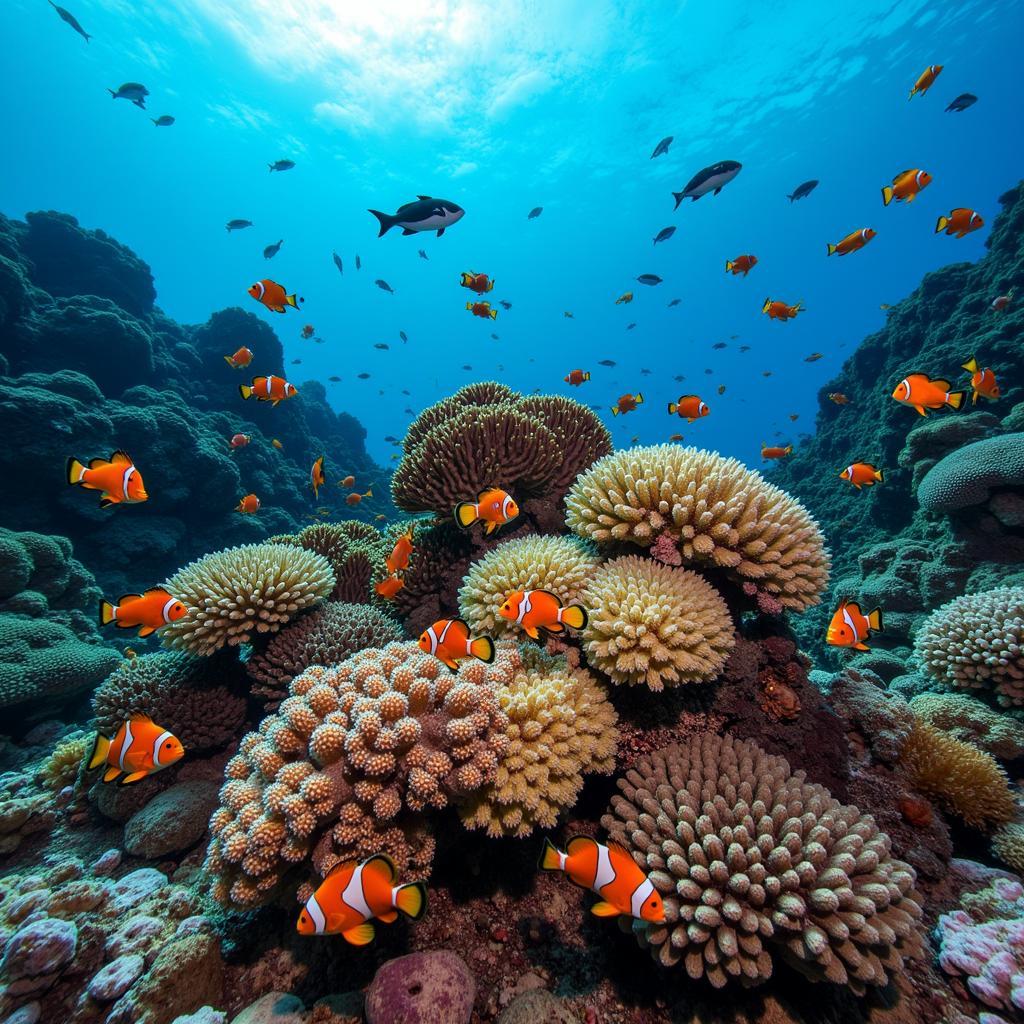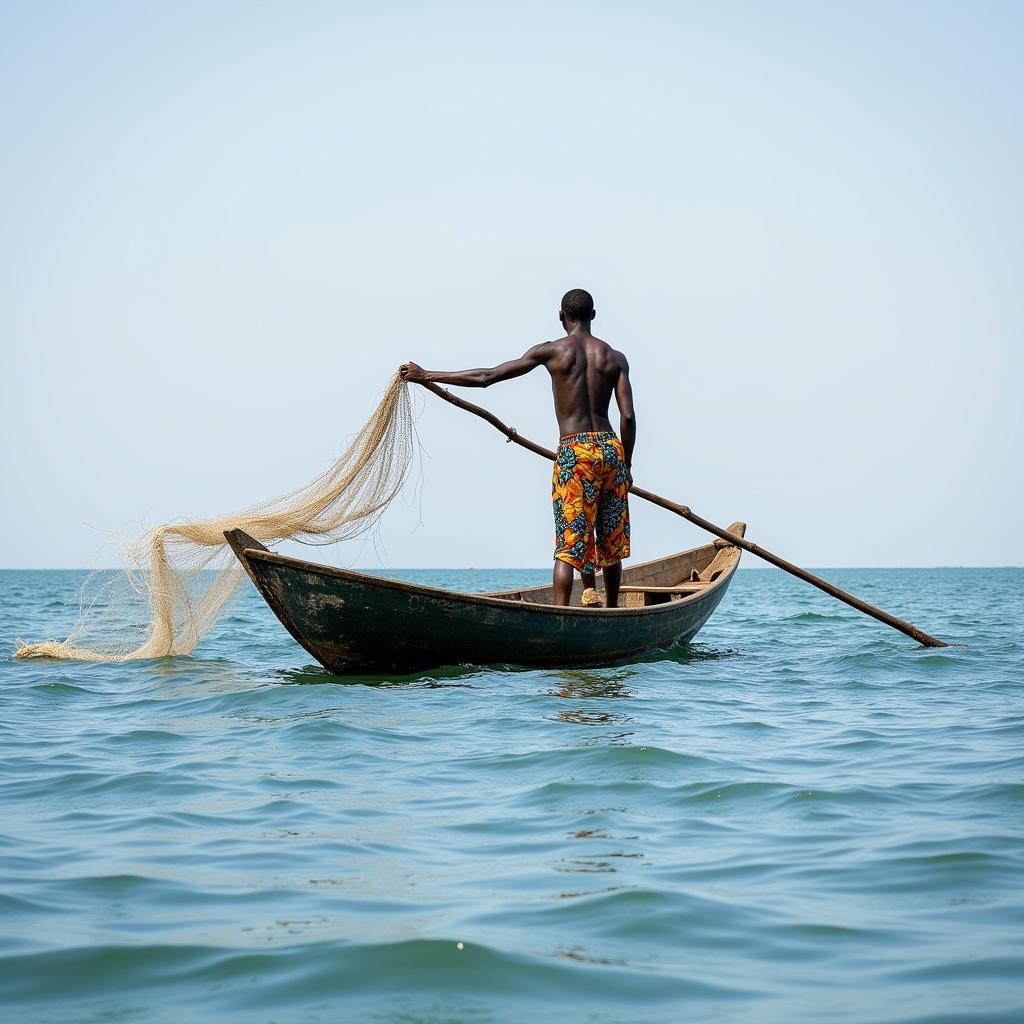A Comprehensive List of African Fish Species
Africa, a continent teeming with life, boasts an astonishing diversity of freshwater and marine ecosystems. From the Nile River, the world’s longest, to the Great Lakes of East Africa, to the vibrant coral reefs of the Indian Ocean, the continent is home to an incredible array of fish species. This comprehensive list of African fish species offers a glimpse into this underwater world, highlighting the fascinating variety and ecological significance of these aquatic creatures.
Freshwater Fish Species: The Jewels of African Rivers and Lakes
African freshwater ecosystems, including rivers, lakes, and swamps, support a significant portion of the continent’s biodiversity. These habitats harbor a remarkable diversity of fish species, many of which are endemic, meaning they are found nowhere else on Earth.
Cichlids: The African Great Lakes, particularly Lake Malawi, Lake Tanganyika, and Lake Victoria, are renowned for their astonishing diversity of cichlid species. These colorful and behaviorally diverse fish have evolved into hundreds of unique species, each adapted to specific niches within the lakes.
Tigerfish: Known for their ferocious hunting techniques and razor-sharp teeth, tigerfish are apex predators in many African rivers. The goliath tigerfish, found in the Congo River Basin, is one of the largest freshwater fish in the world.
Lungfish: These ancient fish possess both gills and lungs, allowing them to survive in oxygen-depleted waters or even out of water for extended periods. African lungfish are found in various parts of the continent, including the Congo River and the Nile River.
Elephantfish: Characterized by their elongated snouts, which are used for electrolocation, elephantfish are fascinating creatures that navigate and hunt using weak electrical fields.
Barbs and Tetras: African rivers and lakes are home to numerous species of barbs and tetras, many of which are popular in the aquarium trade due to their vibrant colors and peaceful nature.
 African Cichlid Diversity
African Cichlid Diversity
Marine Fish Species: Exploring the Coastlines and Coral Reefs
Africa’s vast coastline, stretching along the Atlantic and Indian Oceans, supports a diverse array of marine fish species. The continent’s coral reefs, particularly those in the Red Sea and off the coast of East Africa, are renowned for their biodiversity and beauty.
Seahorses: These unique fish, with their horse-like heads and prehensile tails, are found in coastal waters around Africa. They are masters of camouflage, blending seamlessly with their surroundings.
Reef Sharks: African coral reefs are home to various species of reef sharks, including whitetip reef sharks and blacktip reef sharks. These sharks play a crucial role in maintaining the health of the reef ecosystem.
Moray Eels: With their serpentine bodies and sharp teeth, moray eels are often found hiding in crevices and holes within coral reefs. They are ambush predators, waiting patiently for unsuspecting prey to swim by.
Butterflyfish: As their name suggests, butterflyfish are known for their bright colors and intricate patterns. They are a common sight on African coral reefs, feeding on coral polyps and algae.
Groupers: These large, predatory fish are an important part of the marine food web. African waters are home to several species of groupers, including the giant grouper, which can grow to enormous sizes.
 Marine Life in an African Coral Reef
Marine Life in an African Coral Reef
The Importance of Conserving African Fish Species
Many African fish species face threats due to habitat loss, pollution, overfishing, and climate change. Conservation efforts are crucial to protecting these valuable creatures and ensuring the health of aquatic ecosystems.
Sustainable Fishing Practices: Encouraging sustainable fishing practices, such as setting catch limits and using selective fishing gear, can help reduce the impact of fishing on fish populations.
Habitat Protection: Protecting and restoring critical habitats, such as rivers, lakes, and coral reefs, is essential for the survival of African fish species.
Climate Change Mitigation: Addressing climate change is crucial for mitigating the impacts of rising water temperatures, ocean acidification, and extreme weather events on fish populations.
Public Awareness: Raising public awareness about the importance of fish conservation and the threats they face can help foster support for conservation initiatives.
 Traditional Fishing Practices in Africa
Traditional Fishing Practices in Africa
Conclusion
The diversity of African fish species is a testament to the continent’s rich natural heritage. From the smallest cichlids to the largest groupers, these fish play vital roles in their respective ecosystems and provide livelihoods for millions of people. By understanding the threats these species face and supporting conservation efforts, we can help ensure their survival for generations to come.

